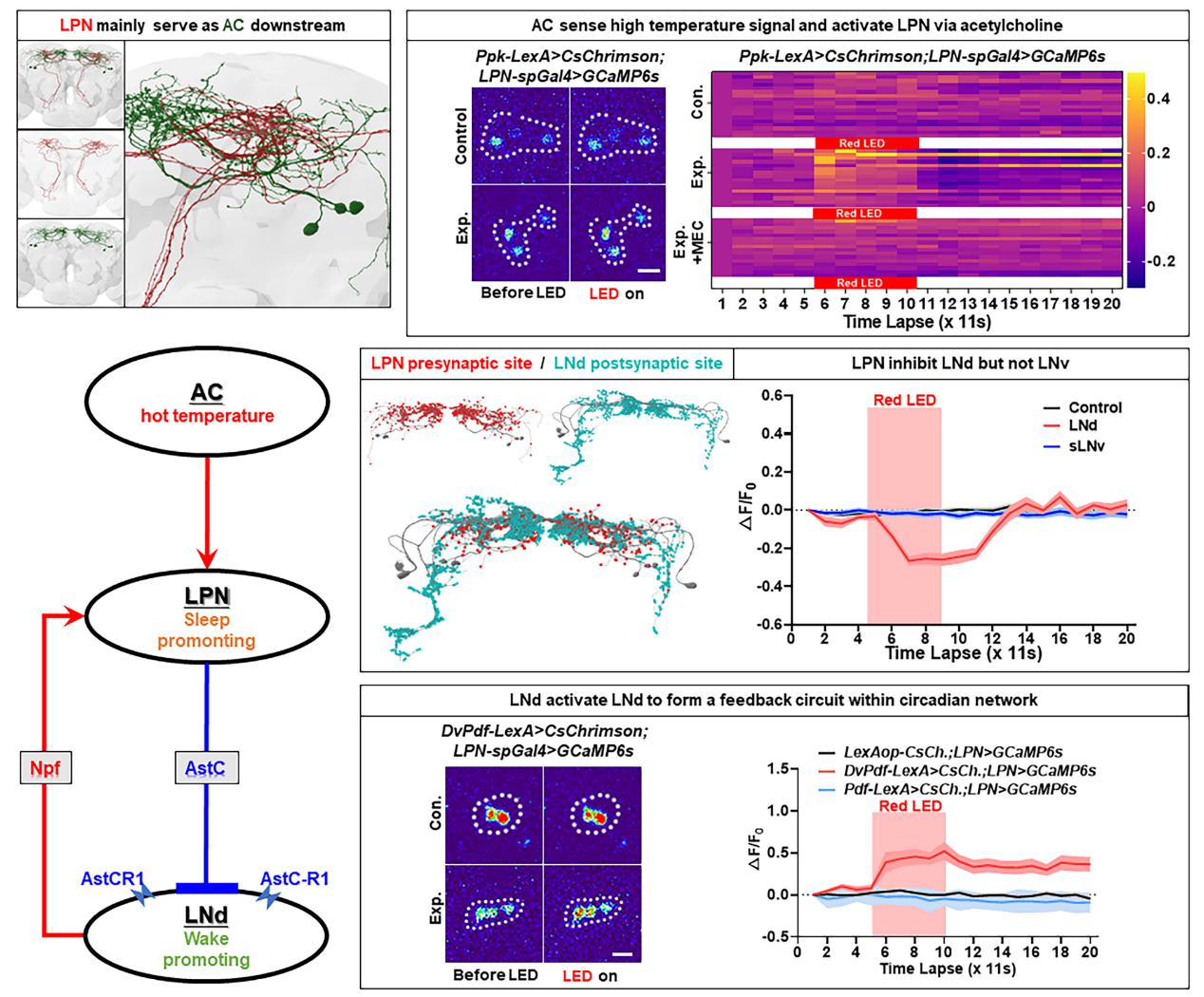The research team led by Prof. Fang Guo has recently published an article titled “Temperature cues are integrated in a flexible circadian neuropeptidergic feedback circuit to remodel sleep-wake patterns in flies” on Plos Biology online on Dec 2rd, 2024.
Animals have evolved the ability to adjust their daily movement and sleep patterns in response to seasonal temperature changes, which is crucial for their survival. For example, excessive activity during the day in hot summer months can lead to dehydration and UV damage, while insufficient activity in cold winter months can result in inadequate food intake, and excessive activity can lead to high energy expenditure at low temperatures. To effectively respond to these environmental challenges, organisms must manage their energy expenditure, flexibly adjust the timing and level of sleep and activity, and achieve the optimal survival strategy. This regulation process relies on the circadian neural network in the brain, which can sense temperature changes and dynamically adjust the initiation of sleep and activity. Although some studies have revealed how temperature affects the sleep and wake cycles of organisms, there is still a lack of in-depth understanding of the specific mechanisms of these neural circuits.
This study reveals a key neuropeptide negative feedback loop in the circadian neural network of fruit flies that dynamically regulates sleep and activity in response to seasonal temperature changes. In high-temperature environments, specific neurons are activated, releasing AstC neuropeptide to inhibit evening activity, helping fruit flies conserve energy more effectively. In low-temperature environments, other neurons regulate the level of daytime activity through the NPF-NPFR pathway in a fine-tuned manner according to the degree of temperature decrease. This flexible regulation mechanism demonstrates how the circadian neural network in the brain of biological organisms interacts with the environment to maintain optimal activity levels in different seasonal temperature conditions and improve survival chances. This discovery also provides important insights into how other animals adapt to climate change.
A flexible neuropeptidergic negative feedback circuit in circadian neural networks
Website Link: https://doi.org/10.1371/journal.pbio.3002918
FANG GUO'S RESEARCH GROUP:
Dr. Fang Guo, a doctoral supervisor, is an associate professor at the School of Brain Science and Brain Medicine, Zhejiang University School of Medicine. He has been selected for the Youth Program of the High-level Talents Program.
Dr. Guo's research group employs cutting-edge techniques in neural circuit tracing, in vivo imaging, and innovative behavioral and neuroscience devices to investigate the molecular and neural circuit mechanisms underlying circadian rhythms, sleep, and other innate behaviors. Since establishing the laboratory independently in 2018, Dr. Guo has published numerous high-impact papers as the first or corresponding author in prestigious journals such as Neuron (2018, 2022), Nature Communications (2024), and Plos Biology (2024). The research group is currently recruiting postdoctoral researchers and welcomes individuals with a strong passion for the field of neurology.
Email: gfang@zju.edu.cn.





 Location :
Location : 

